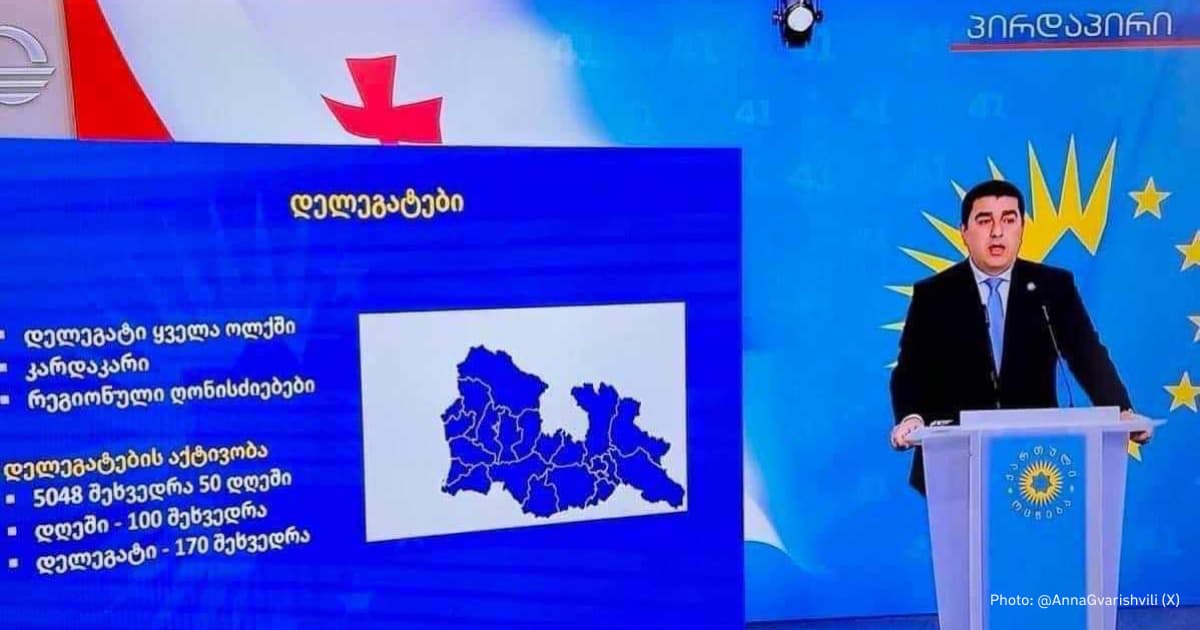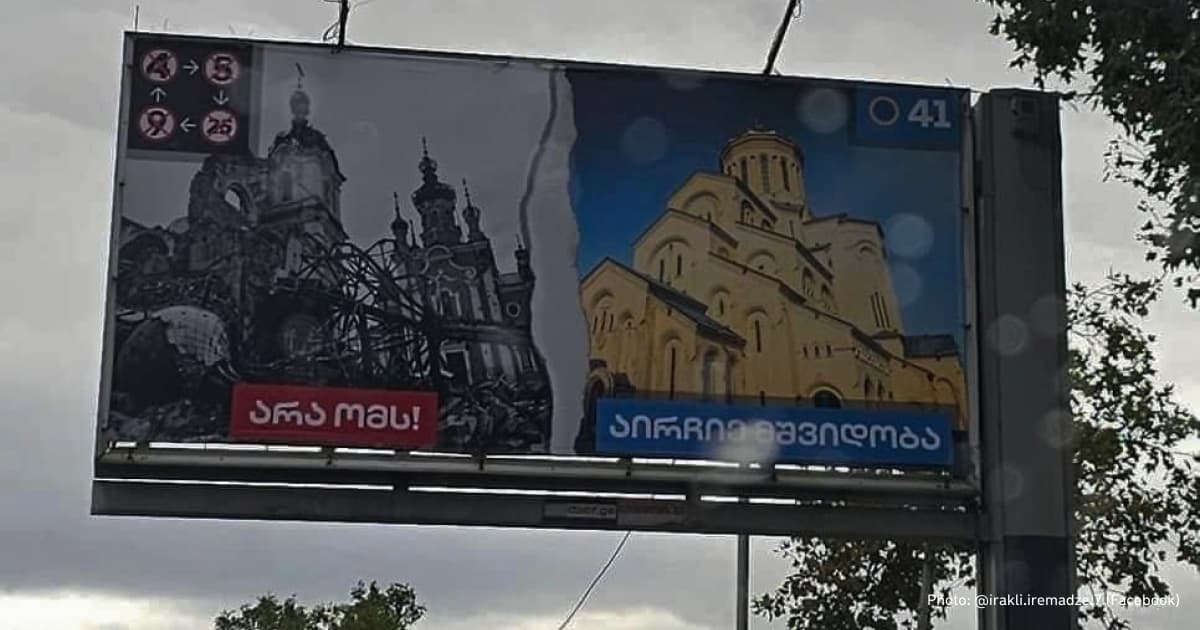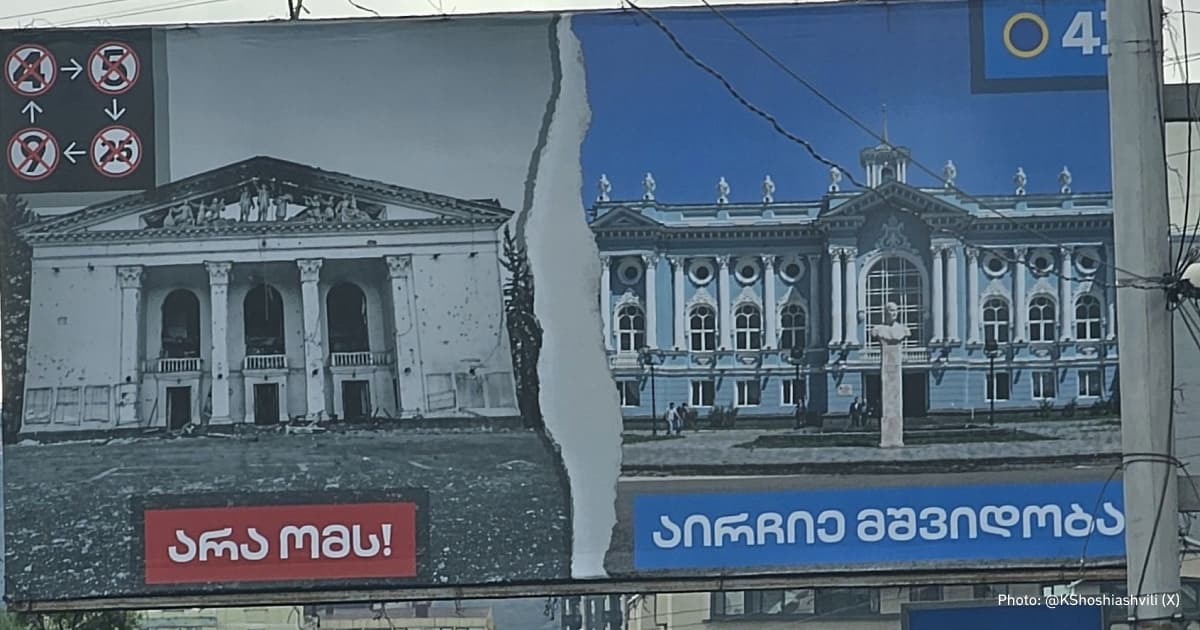«The momentum of the protest is gradually gathering». What’s happening in Georgia after the potentially rigged October parliamentary elections
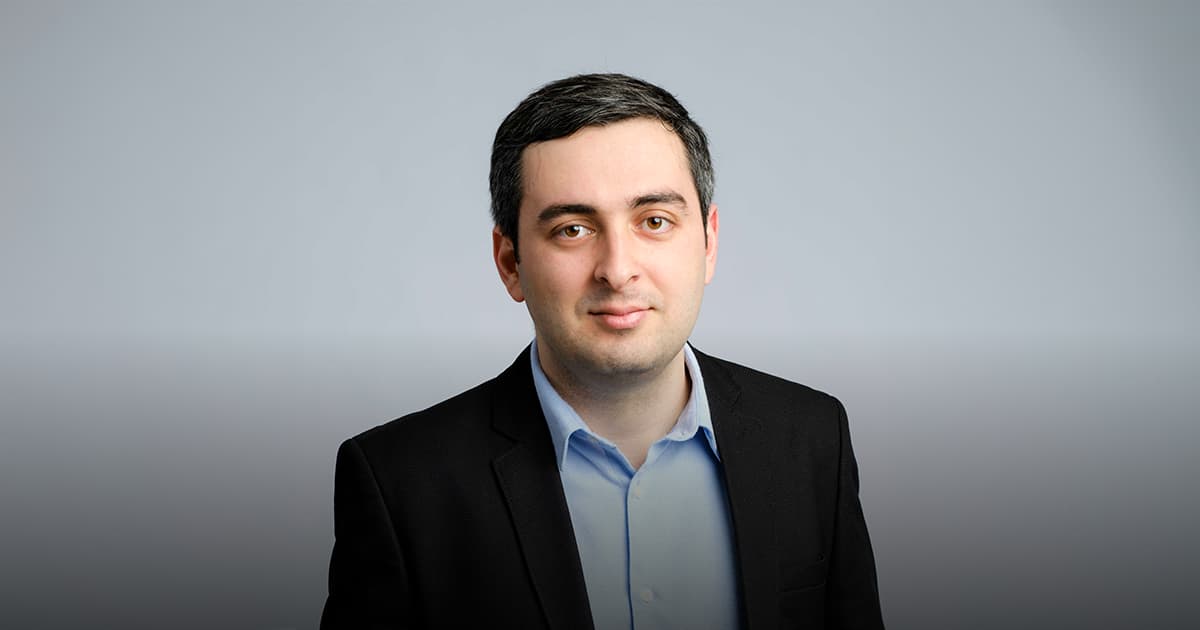
On October 26, Georgia held parliamentary elections. These elections took place already after the start of the full-scale Russian invasion of Ukraine. Georgia, which survived the invasion of Russia in 2008, went through a long time of balancing between dealing with the unpunished Russia and the country's European aspirations.
The ruling Georgian Dream party is entering its fourth term. But this time, the opposition parties gathered momentum due to Georgian Dream’s unpopular laws like the “foreign agents act” and overall country’s leaders' ties with Russia. The USA Department of the Treasury sanctioned two Georgian government officials for violating freedom of protest in September 2024. The EU halts plans to open accession talks with Georgia, an EU Commission October report suggests.
Svidomi spoke with Irakli Sirbiladze, a policy researcher from Georgia and a ReThink.CEE Fellow 2023 of the German Marshall Fund of the United States about Georgian Dream’s policy, the elections fatigue, and Georgia’s unpredictable future.
How the parliamentary elections were held in Georgia
– The exit polls of the parliamentary elections in Georgia showed quite different results. The pro-government media announced the victory of Georgian Dream with more than 50% votes. The opposition media and Edison Research company, on the contrary, said that the opposition parties together gained more than 50%. The “official” results of the voting show the victory of Georgian Dream in more than 50%. What do you think of such polarizing results?
No previous exit polls commissioned by the pro-opposition media deviated this much from the actual election results. Clearly – and as two international pollsters, Edison Research and HarrisX, themselves stated – this could be the result of manipulation and irregularities. This is in line with the findings of many reputable international and local election observation missions, including the OSCE-ODIHR (Office for Democratic Institutions and Human Rights).
Georgian Dream support was below 50%. This is demonstrated by the results in major urban areas, including in Tbilisi, where electoral intimidation does not work as well as in rural areas.
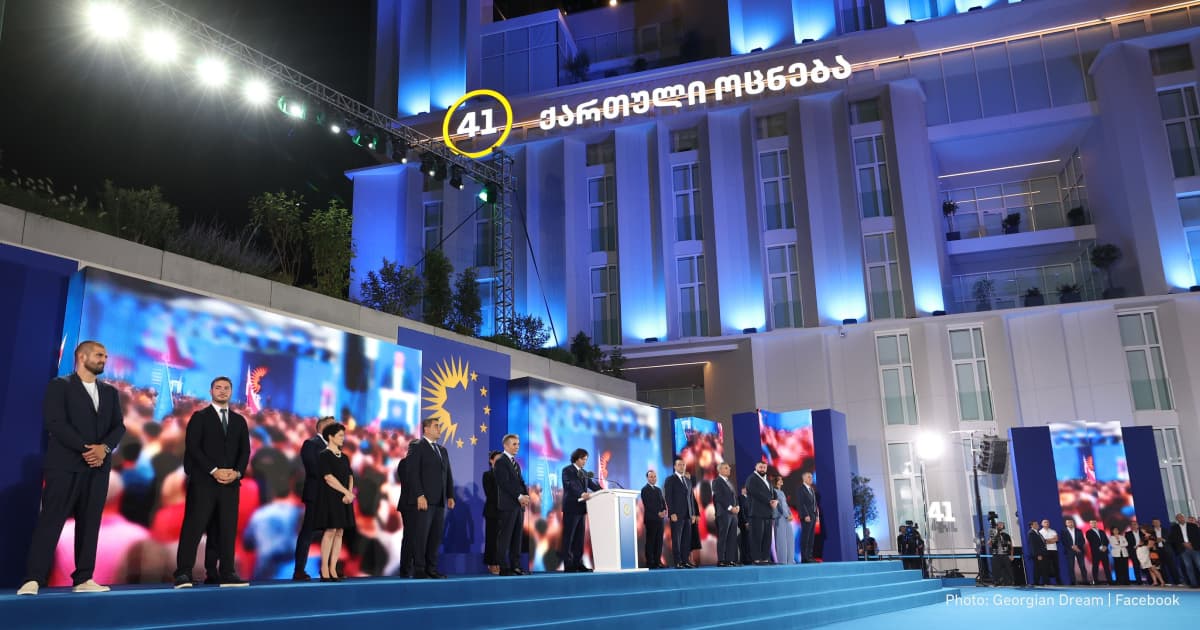
Georgian Dream getting over 50% of the votes is the result of electoral manipulation and irregularities – especially outside the major urban centers –both during the electoral campaign and on election day. They took advantage of being the governing party and intimidated and bribed the voters systematically. This is on top of their polarizing campaign messages and vast financial resources compared to other electoral contenders.
– One by one, the opposition parties refuse to start a new parliamentary session, citing falsified election results. Will Georgian Dream be able to start its fourth term in power under such conditions?
From the legal point of view, they can. Politically, even if they are going to govern with a single-party majority, they would have preferred to have opposition there at least formally. I expect them to start the fourth term (unless the protest movement physically stands in their way). They will probably try to manufacture some split-up within their own party to create the false image of a multi-faction parliament.
– The President of Georgia Salomé Zourabichvili announced the victory of the opposition and supported the protests. But will she be able to influence the election process? Can she initiate re-election?
As her presidential term nears its end, her only power is to support the protests politically and engage with international partners to make sure that the elections are not seen as legitimate by Western countries. Otherwise, her role is limited. She does not have the power to call new elections.
Her reelection as president is also unlikely because the president is no longer elected directly but by the electoral college. That would require the support of the Georgian Dream – and that is quite unlikely.
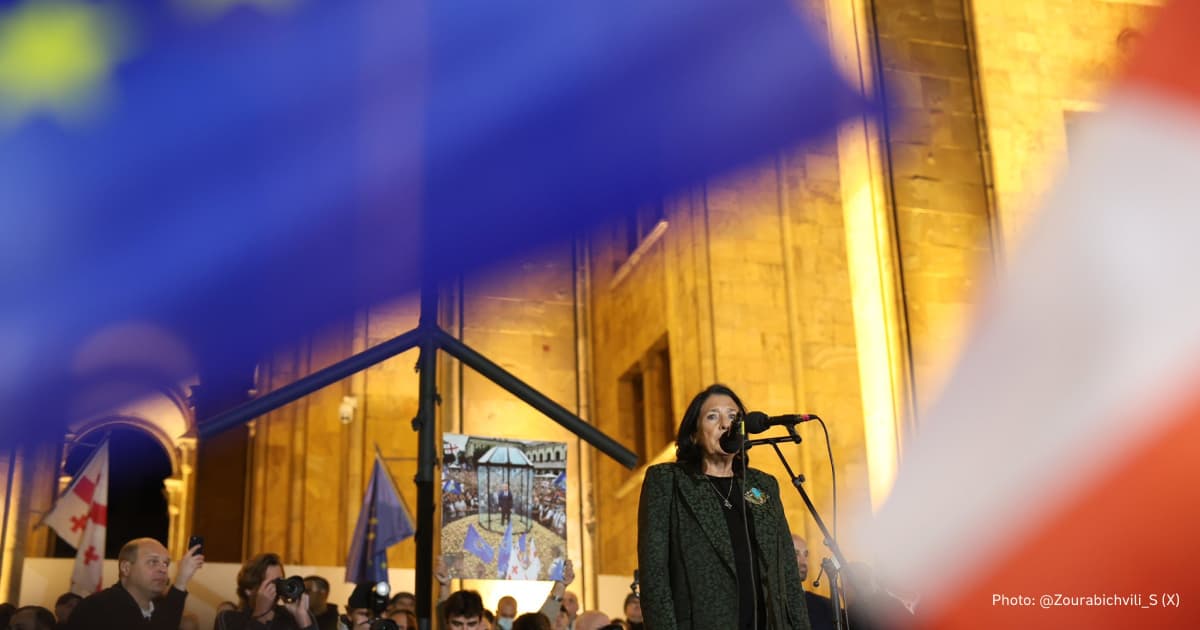
– Is it even possible to appeal the voting results in general?
There are some appeals and legal battles going on now. Civil society and opposition parties try to still use legal avenues to contest the election results even if the judiciary is fully under Georgian Dream control. There was a precedent when the local judge from one of the municipalities (Tetritskaro) found the violations of voter secrecy and annulled the results of some electoral precincts. That ruling was then overruled by the higher court. Even if ultimately unsuccessful, legal battles need to be still fought to strengthen the political contestation of the election results.
Georgian Dream election campaign
– Georgian Dream actively used images of Ukrainian cities destroyed during the war against Russia in its election campaign. Does the war factor still play such a role in Georgian society?
The fear of war is still there (as is everywhere) and the Georgian Dream exploited that for political gains. However, it is hard to assess the extent to which their campaign was successful. The fact that they needed to rig the elections indicates that their campaign messages – particularly the instrumentalization of human tragedy in Ukraine for political purposes – were not well received by the majority of the public.
– Georgian Dream quite actively campaigned against the opposition media, which refused to show the party's campaign materials. What will happen to these media after their victory?
If Georgian Dream continues to govern, then it is reasonable to expect that opposition media will face more challenges, especially those funded by Western donors. Georgian Dream has yet to target civil society organizations and independent media who refused to register as required by the “foreign agent” law. I don’t think Georgian Dream will outright ban them. Imposing fines, stigmatizing and creating a hostile environment for the independent and pro-opposition media outlets is likely to be Georgian Dream’s key strategy.
– Does the Georgian Dream still cling to the idea of EU integration? Will we see how in this term the party will finally turn into an ally of Russia and transform Georgia too?
They formally commit to EU integration, because you cannot win elections in Georgia if you openly reject the EU. At the same time, you cannot win elections in Georgia if you formally align with Russia. That is why Georgian Dream started to manipulate the public and use Orwellian doublethink when it comes to EU integration: they try to convince the public that they can still advance on the EU path even if they reject fundamental EU values such as democracy and rule of law and align more and more with authoritarian powers, including China. And, importantly, the EU itself says Georgia cannot advance on the EU path in these circumstances.
Georgian-Russian relations under Georgian Dream feature formal knowns and informal unknowns. Informally, the two governments are already aligned, but formally there is still a distance. Given the experience of war and occupation, it is politically costly for any political party to openly embrace Russia. So, I expect Georgian Dream to continue informal ties but keep a formal distance from Russia. Russia also understands this nuance about Georgia. By distancing Georgia from the EU, NATO and the US, Georgian Dream serves Russia’s interests already and there is not much Russia needs to do about it. Georgian Dream now builds closer ties with Russia’s partners such as China and Iran– and that’s also in Russia’s interest. De-westernizing the South Caucasus is Russia’s ultimate goal and Georgian Dream helps Russia achieve that.
What can we expect from Georgia in the future?
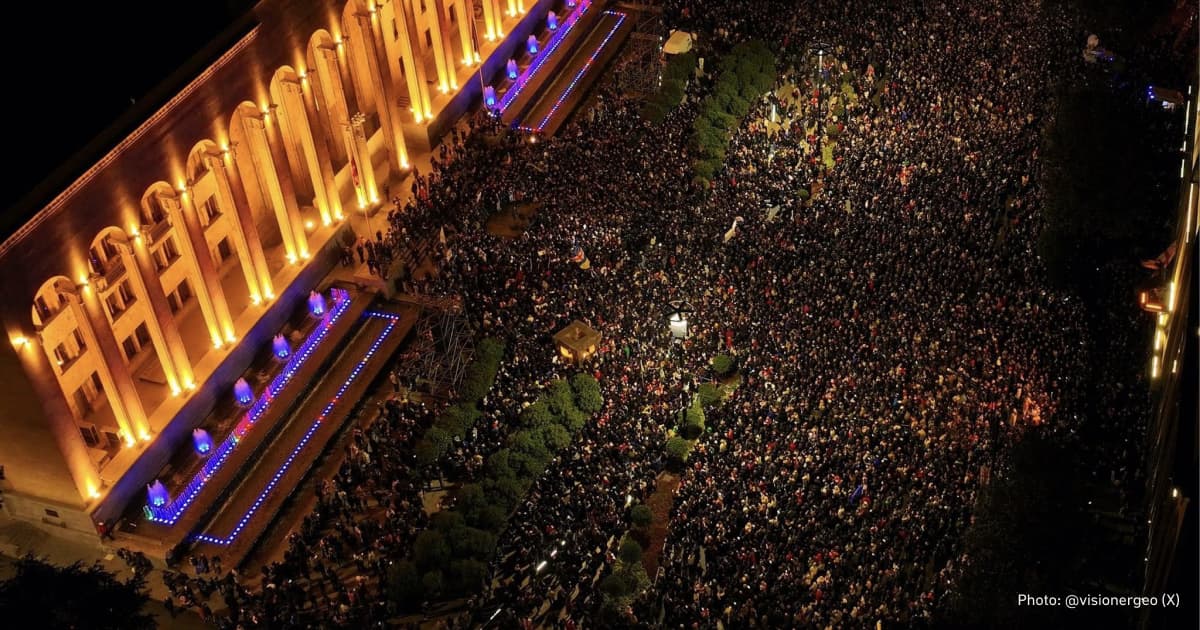
– Opposition protests against the election results took place in Tbilisi on October 28 and November 4. But is a large-scale movement possible across the country? And what factors are necessary for this?
The momentum of the protests is gradually gathering. As new information about the rigged elections is emerging and opposition parties commit to protest on a daily basis, I expect protests to grow. How the EU and US respond to this is also important. In Georgia, protests proved to be successful when the ruling party faced pressure both internally and externally. If the West decides to legitimize the election results, then protests are likely to fade. The key moment will be the end of November or December 1 (the last day when the newly elected parliament must meet). That will be the peak of the protests and things will become clearer during and after that.
– Viktor Orbán congratulated Georgian Dream on its victory. And other European leaders, on the contrary, actively talk about the falsification of the results. If Georgian Dream stays in power, will the party try to maintain ties with the EU and European countries after such statements?
The EU is likely to maintain minimal ties but that does not mean Georgia will advance on the accession path. The EU will likely continue inviting Georgia to attend the European Political Community summit, for instance. There, the EU invites everyone in Europe except for Russia and Belarus.
However, Georgia’s accession process is stopped now and whether or not it continues depends on what Georgian Dream does. They must ensure an independent investigation of the election irregularities and withdraw two laws: the foreign agent law and the so-called anti-LGBT propaganda law. They are so far unwilling to do any of the three. Hence, a freeze in EU-Georgian relations is likely to continue.
– Actions speak louder than words. During his third term, Georgian Dream passed rather unpleasant laws, such as the law “on foreign agents” and the “anti-LGBT” law. Will we see more of these laws in a fourth term if the party holds the election results?
I think so. We know one thing for sure: no autocrat anywhere returned to the genuine democracy path. The Georgian Dream will not be an exception to the rule. They will probably start enforcing the foreign agent law and adopt more repressive, expansive and discriminatory laws to target those activists who disagree with them.
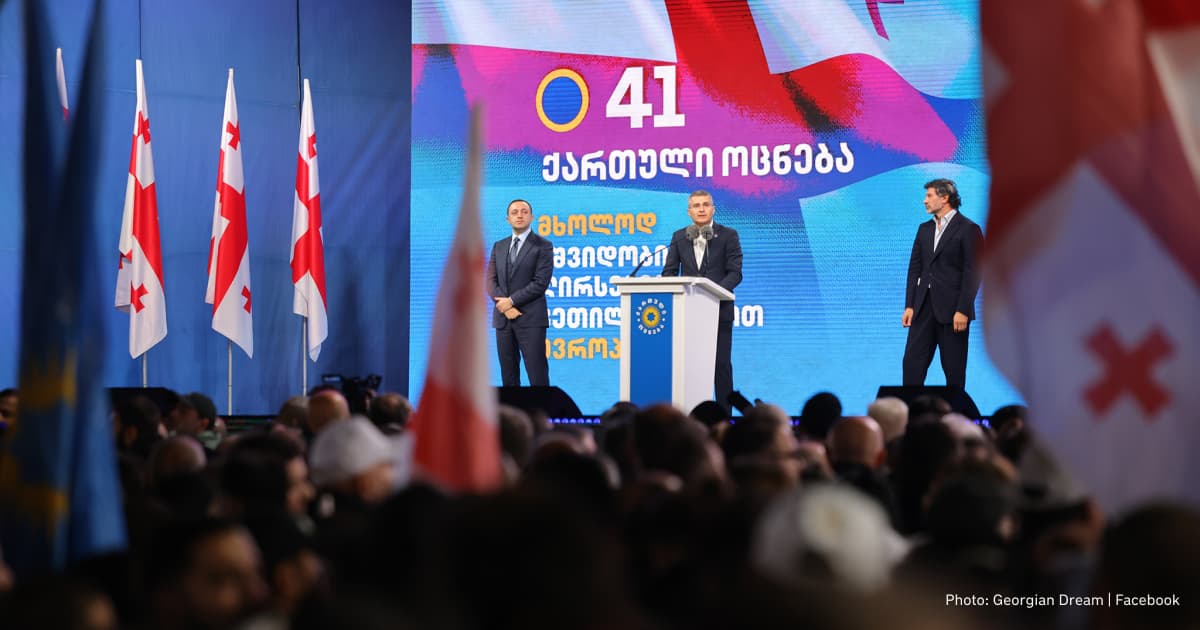
– Now the country is, metaphorically speaking, in “limbo”. The results of the elections are not yet accurate, but they are no longer accepted. The next steps of the ruling party are still unknown. But, in your opinion, what future awaits Georgia? Will it be possible to return Georgia to the pro-democratic path, and what is the best way to do it?
I still remain hopeful that there is a way out. Georgians voted in a way that was about to end one-party dominance and open the way for European-style consensual politics. But Georgian Dream sees that as a threat – it wants to govern as a single party. They rigged elections massively to just hold on to power. Now it is up to Georgians, really. If their protests grow and are successful enough to pressure the Georgian Dream to hold another election in a more or less fair way, then democracy– and with it closer ties with the West – will be restored. If not, then Georgia will slide into autocracy, the ties with the West worsen and engagement with Russia and China is likely to strengthen.
For more information on the Georgian internal policy, Irakli recommends two additional articles on Georgia:

